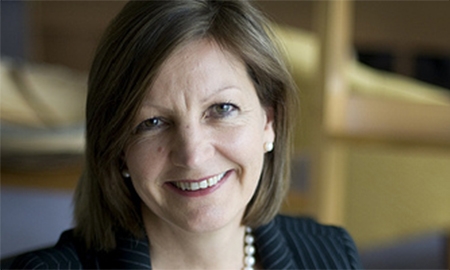Many economists talk about the positive correlation between FDI levels and economic growth. Do you think that education is the key variable that will position Malaysia as a high-income country?
Education is a key to building the knowledge-based economy that will lead Malaysia into becoming a high-income country. I believe that we must focus our efforts on producing graduates who can become future leaders, as well as generate research and innovation related to the country’s priorities.
Monash University Malaysia is working successfully in both of these areas. This is a critical time as Malaysia prepares its 11th Malaysia Plan. I believe that Malaysia has the right environment for education to flourish. It has a highly diverse education sector, with a balance between public and private universities. This is vital in Malaysia’s quest towards becoming a high-income country.
As an institution of higher learning, we are engaged with the Ministry of Education in contributing to the 11th Malaysia Plan and providing input for the Higher Education Blueprint. The Ministry is encouraging participation of the private sector in the country’s education capacity building.
What is your assessment regarding the impact of AEC (ASEAN Economic Community) and what is your vision regarding Malaysia as a hub for education in the region?
Malaysia has the potential of becoming an education hub in the region. Malaysia is a politically stable country in a convenient geographical location. The low cost of living and the fact that most people speak English also help to make the country attractive as an education hub.
Unlike any other ASEAN countries, Malaysia has a very diverse range of education options and this is an incredible asset. On the downside, Malaysia is positioned between two world leaders in higher education – Hong Kong and Singapore. Competition for the best international students and academic staff is very high.
Malaysia has the right ingredients to become a hub. However, it has to work very hard on a number of issues to be positioned ahead of other markets. A key issue that needs to be addressed relates to the lengthy process for obtaining student visas for international students.
How would you describe the contribution of Monash University’s to the overall development of Malaysia?
Monash University is the first Australian university to establish an offshore campus and the first branch campus to be established in Malaysia Our Australian campuses in Victoria have a long history with Malaysia, going back to the years of the Colombo Plan when many students studied in Australia. These graduates have become industry leaders here in Malaysia, as well as internationally.
Our Malaysian campus started by offering the same programs as those in Australia. As time has passed, we introduced more programs tailored to the local market. Currently we have a very well established faculty who work on research related to government priorities. Over 30% of our student population are international, creating a diverse student population and a dynamic learning environment. The campus also has Australian exchange students who benefit from an Asian experience. Monash has a long-term commitment to Malaysia. In supporting the country’s efforts to become a high-income country, our programs are expanding to offer more graduate taught masters courses tailored to meet local needs and build the leadership and entrepreneurship skills required by industry.
Can you please share with us more about the programmes and field of research (e.g. stem cell science, nanotechnology, reproductive biology, drug development and discovery) as drivers of the transformation towards a knowledge-based economy?
Monash Malaysia currently has six research platforms that link to the regional and government priorities.
For example, our Halal Ecosystems research platform examines ways to incorporate Islamic and halal thinking into a broad range of macro business issues of pressing national, regional and global importance.
In the Advanced Engineering platform, we look at some of the major infrastructure issues challenging the region including energy, resources and sustainable processes, including green electronics. We have the largest Civil Engineering laboratory of any university in the country!
Another area of focus is socioeconomic transformation in South-East Asia. This explores such issues as governance, wealth distribution, pollution and poverty alleviation, with a particular focus on ASEAN countries.
In addition, we research tropical medicine and biology to address disease, agricultural production, food science, environmental management and evolutionary biology. Our campus has state-of-the-art laboratories, including sophisticated genomic sequencing facilities.
The campus has an established Brain Research Institute as well as a public health surveillance project in Segamat, known as the South East Asia Community Observatory.
All these platforms help us build the university’s reputation as well as aid in attracting faculty from Australia and internationally.
Are these platforms open for new partnerships with British universities?
Absolutely. The name of the game now is partnerships and while researchers are individually collaborating all over the world, more substantial institutional partnerships are valuable. Monash has a recently formed partnership with Warwick University in the UK and our campus is engaging with them in projects that link in through our research platforms. We also collaborate with Nottingham University Malaysia, especially in the field of Engineering and Pharmacy.
You are a figure-head in the education sector internationally with extensive research and publications. What is your vision for Monash University in Malaysia?
My goal is for Monash Malaysia to be fully embedded within the community. Our objective is not to be seen as a foreign branch campus that operates only for the benefit of Australia. We produce graduates that are capable of being leaders in Malaysia and are in demand internationally, and we conduct research in partnership with industry to solve some of the most pressing issues in the region and globally. Finally, I would like to see this campus become a real gateway for the ASEAN region, to promote mobility of students, educators and researchers and increasing the understanding and awareness of Asia in the 21st Century. We are looking forward to working closely with the government and industry as the country moves forward.

0 COMMENTS